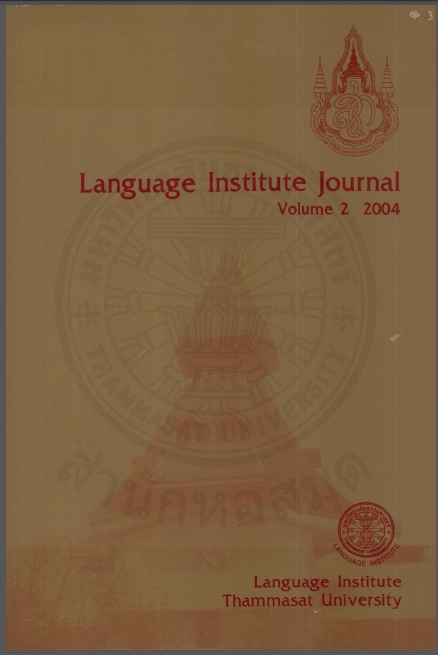Idioms: The Case for the Defense
Main Article Content
Abstract
Language uses both data--which must be learned piece-bypiece, and computation--which can be widely generalised. It seems to be accepted, both by theoretical linguists and by language teachers, that there are quite distinct components within the language mechanism which mirror this split ('vocabulary' versus 'grammar' ; 'the lexicon' versus 'syntax' ; 'words' versus 'rules'). On closer examination, the boundaries are less obvious that they first appear. This complexity is highlighted by the 'phrasal idioms'. Idioms, like 'words' , carry idiosyncratic meanings. Yet in other ways they behave like ordinary phrases or sentences. Idioms are widespread in language and frequently encountered in everyday speech. Yet the treatment they receive in EFL/ESL textbooks is often strangely dismissive. Many linguistics are also happy to consign idioms to the 'prison of the lexicon'. In this paper, I would like to argue that idioms have been falsely imprisoned. They are in fact peculiarly useful, as well as important, in language teaching. They may also mirror some of the mechanisms involved in first language acquisition by children.
Article Details
How to Cite
Winward, J. (2012). Idioms: The Case for the Defense. LEARN Journal: Language Education and Acquisition Research Network, 2, 43–54. retrieved from https://so04.tci-thaijo.org/index.php/LEARN/article/view/102785
Section
Research Articles


